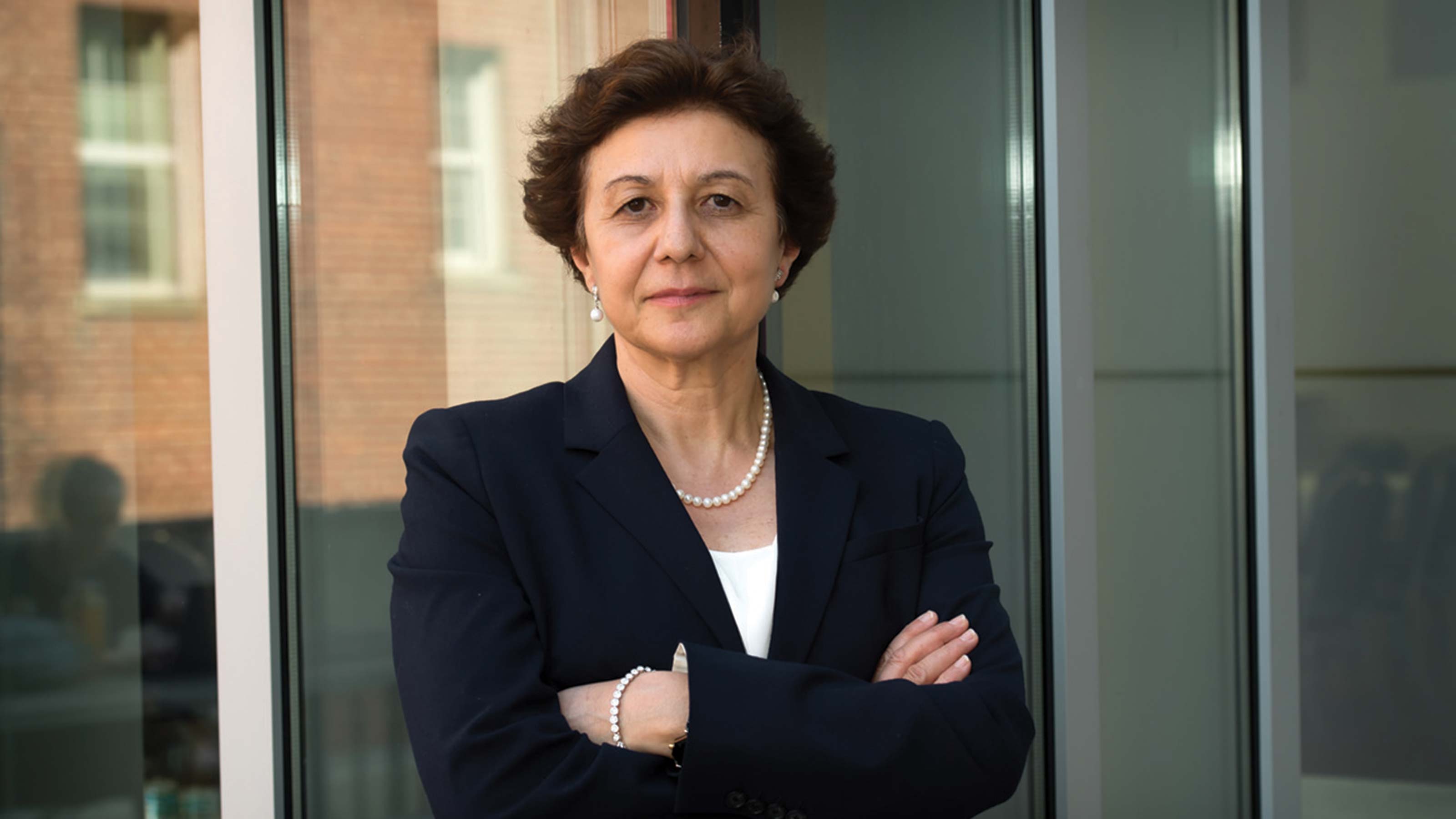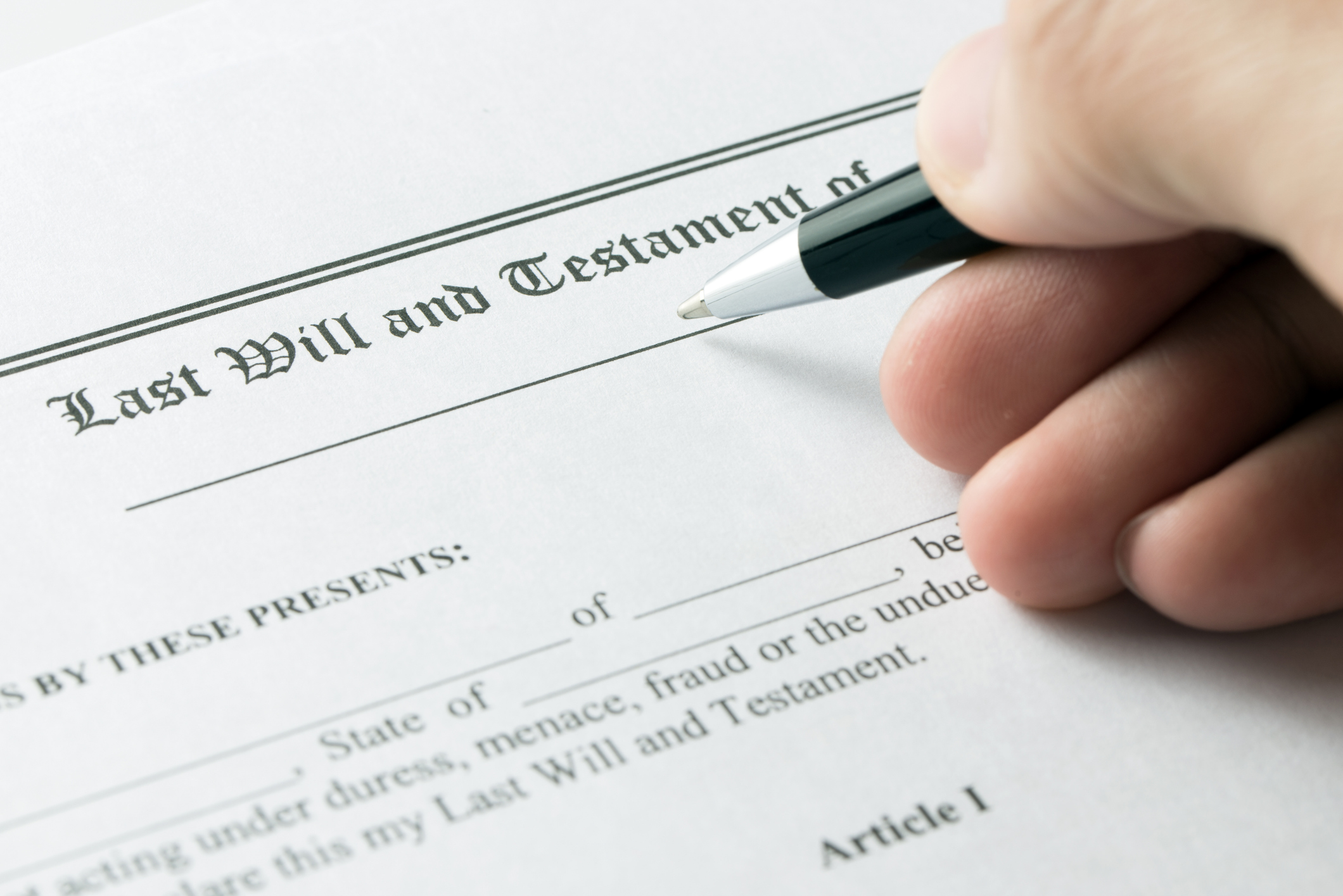Make Sure Your Spouse Has Your Passwords
It’s critical for women to have access to key financial information as well as passwords to electronic records and devices.

Profit and prosper with the best of Kiplinger's advice on investing, taxes, retirement, personal finance and much more. Delivered daily. Enter your email in the box and click Sign Me Up.
You are now subscribed
Your newsletter sign-up was successful
Want to add more newsletters?

Delivered daily
Kiplinger Today
Profit and prosper with the best of Kiplinger's advice on investing, taxes, retirement, personal finance and much more delivered daily. Smart money moves start here.

Sent five days a week
Kiplinger A Step Ahead
Get practical help to make better financial decisions in your everyday life, from spending to savings on top deals.

Delivered daily
Kiplinger Closing Bell
Get today's biggest financial and investing headlines delivered to your inbox every day the U.S. stock market is open.

Sent twice a week
Kiplinger Adviser Intel
Financial pros across the country share best practices and fresh tactics to preserve and grow your wealth.

Delivered weekly
Kiplinger Tax Tips
Trim your federal and state tax bills with practical tax-planning and tax-cutting strategies.

Sent twice a week
Kiplinger Retirement Tips
Your twice-a-week guide to planning and enjoying a financially secure and richly rewarding retirement

Sent bimonthly.
Kiplinger Adviser Angle
Insights for advisers, wealth managers and other financial professionals.

Sent twice a week
Kiplinger Investing Weekly
Your twice-a-week roundup of promising stocks, funds, companies and industries you should consider, ones you should avoid, and why.

Sent weekly for six weeks
Kiplinger Invest for Retirement
Your step-by-step six-part series on how to invest for retirement, from devising a successful strategy to exactly which investments to choose.
About a year ago, my friend Susie’s husband of 46 years died unexpectedly. John, a dedicated techie, left Susie with wonderful memories, an estate to settle and a technology nightmare: an Apple computer, four iPads, four iPhones, a stack of hard drives—and no passwords. That left her unable to get access to critical information (think tax records) and accounts in his name that were on autopay, including Amazon Prime and the cell phone bill.
To help her crack the codes, Susie hired someone from her IT department at work. They were never able to get into the computer, but thanks to a combination of logic and “wild guesses,” they managed to open the iPads and iPhones. The entire process took almost a year, “and it all occurred during a time when, as a grieving widow, you are most vulnerable,” says Susie.
Getting access to key financial and estate information has always been a critical issue for women, who are statistically more likely than men to be widowed or may have a spouse who suffers from a serious illness. “The problem has gotten more pronounced as we’ve gone more digital,” says Jody King, director of financial planning at Fiduciary Trust Co. in Boston. “With digital records and passwords, there’s no paperwork to help you find accounts no one knew existed,” she says.
From just $107.88 $24.99 for Kiplinger Personal Finance
Become a smarter, better informed investor. Subscribe from just $107.88 $24.99, plus get up to 4 Special Issues

Sign up for Kiplinger’s Free Newsletters
Profit and prosper with the best of expert advice on investing, taxes, retirement, personal finance and more - straight to your e-mail.
Profit and prosper with the best of expert advice - straight to your e-mail.
A further complication is that women of all ages often delegate key financial and estate responsibilities to their spouse. “Younger women may have a better awareness of the family’s financial situation than older generations, but they still may not choose to be involved,” says King.
To address that problem, Marilee Fitzgerald and Robyn Wagman co-founded Estate of Mine Organizers, a system for helping women organize both personal and financial records. Their system includes checklists of must-have documents—a will, powers of attorney for financial and health affairs, bank and investment accounts—but it also covers facets of life other than financial: Where is the warranty for your new stove? The titles to your cars? The name of the furnace repair person? (Susie had to scramble to find a plumber on New Year’s Eve when her ice maker broke, gushing water onto the floor.)
Minimize surprises. Fitzgerald and Wagman have found that a number of issues tend to trip people up—for example, beneficiary designations on life insurance policies or retirement accounts. “People don’t understand that beneficiaries take precedence over anything you have in your will,” says Wagman, “and they often forget to update them.”
She and Fitzgerald suggest other ways to avoid unpleasant surprises: Be sure your joint bank account really is in both names. Have a credit card in your own name, and get a copy of each spouse’s credit reports. Keep a copy of your will outside the safe deposit box (see "9 Things You'll Regret Keeping in a Safe Deposit Box").
If getting organized sounds overwhelming, start small. When Fitzgerald and Wagman wanted to get their own affairs in order, Fitzgerald began by compiling a list of emergency contacts, and Wagman started by opening the mail and looking at bills and insurance paperwork. Then, says Fitzgerald, “practice being on your own by taking over the finances for a couple of weeks to minimize surprises.”
And what about keeping tabs on those devilish passwords? The women I interviewed for this column use digital password managers (Kiplinger’s often recommends LastPass)—but as backup, they also keep a written record and store it in a place that’s secure yet accessible to family members. They consider the risk that written passwords might be stolen less serious than making sure everyone can find them in an emergency—and avoiding a situation like Susie’s.
Even in this digital age, paper still rules. Says King, “Any documentation you have is always the best thing.”
Profit and prosper with the best of Kiplinger's advice on investing, taxes, retirement, personal finance and much more. Delivered daily. Enter your email in the box and click Sign Me Up.

Janet Bodnar is editor-at-large of Kiplinger's Personal Finance, a position she assumed after retiring as editor of the magazine after eight years at the helm. She is a nationally recognized expert on the subjects of women and money, children's and family finances, and financial literacy. She is the author of two books, Money Smart Women and Raising Money Smart Kids. As editor-at-large, she writes two popular columns for Kiplinger, "Money Smart Women" and "Living in Retirement." Bodnar is a graduate of St. Bonaventure University and is a member of its Board of Trustees. She received her master's degree from Columbia University, where she was also a Knight-Bagehot Fellow in Business and Economics Journalism.
-
 Dow Adds 1,206 Points to Top 50,000: Stock Market Today
Dow Adds 1,206 Points to Top 50,000: Stock Market TodayThe S&P 500 and Nasdaq also had strong finishes to a volatile week, with beaten-down tech stocks outperforming.
-
 Ask the Tax Editor: Federal Income Tax Deductions
Ask the Tax Editor: Federal Income Tax DeductionsAsk the Editor In this week's Ask the Editor Q&A, Joy Taylor answers questions on federal income tax deductions
-
 States With No-Fault Car Insurance Laws (and How No-Fault Car Insurance Works)
States With No-Fault Car Insurance Laws (and How No-Fault Car Insurance Works)A breakdown of the confusing rules around no-fault car insurance in every state where it exists.
-
 My Four Pieces of Advice for Women Anxious About Handling Money
My Four Pieces of Advice for Women Anxious About Handling MoneyTalking about money can help you take control of your finances.
-
 Talking Money With Your Spouse
Talking Money With Your Spousepersonal finance These should be important conversations that will be helpful in the long run.
-
 Readers Share Tips for Raising Money Smart Kids
Readers Share Tips for Raising Money Smart KidsRaising Money-Smart Kids What's the right age for a child to have their own credit card? Opinions vary.
-
 How to Boost Your Financial Savvy
How to Boost Your Financial SavvyWomen & Money Women need to know how financial knowledge can help them take care of their families and themselves.
-
 What Kids Need to Know About Finances
What Kids Need to Know About FinancesWomen & Money In a digital world, it's even more critical to teach children how to handle cold, hard cash.
-
 Estate Planning Got You Down? Start With a Will
Estate Planning Got You Down? Start With a WillFinancial Planning Estate planning may feel overwhelming. Start with a will and the rest will fall into place.
-
 Fresh Voices in Personal Finance
Fresh Voices in Personal FinanceWomen & Money An impressive number of young women have entered the personal finance field via blogs, websites and social media.
-
 A Salute to Money Smart Moms
A Salute to Money Smart Momssavings Today's mothers are in a perfect position to share their experiences in the workforce and as investors.